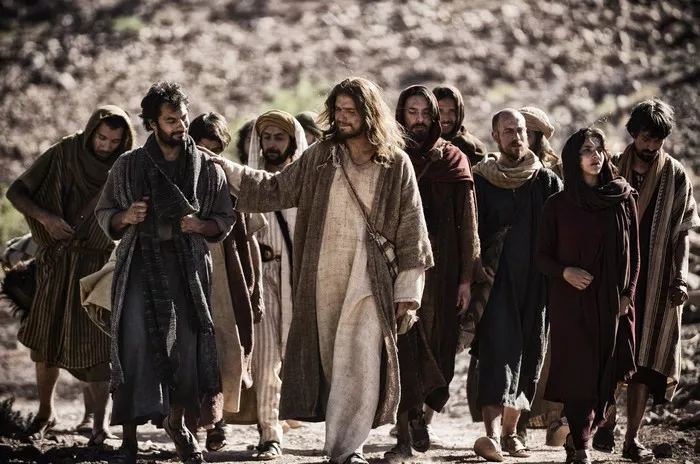Throughout the centuries, the miracles attributed to Jesus Christ have captured the imagination and devotion of countless believers. From healing the sick to calming storms, his extraordinary deeds are recounted in the Gospels, offering glimpses into his divine nature and the power of faith. Yet, the exact number of miracles performed by Jesus remains a subject of debate and speculation. In this exploration, we delve into the multifaceted nature of Jesus’ miracles, their significance, and their enduring impact.
1. Number of Miracles:
Acknowledging the elusive nature of a definitive count, it’s important to recognize that the Bible itself doesn’t provide a precise tally of Jesus’ miracles. However, scholars commonly cite approximately 37 miracles specifically mentioned in the four Gospels. These miraculous acts range from healing the blind and the lame to feeding the multitude and raising the dead.
Yet, this number is merely a starting point. Numerous verses suggest that Jesus’ ministry was replete with unrecorded miracles. For instance, John 21:25 states, “Jesus did many other things as well. If every one of them were written down, I suppose that even the whole world would not have room for the books that would be written.” Such passages hint at a multitude of unchronicled miracles, expanding the scope of his divine intervention beyond what is explicitly documented.
2. Types of Miracles:
Jesus’ miracles can be categorized into distinct groups, each showcasing different aspects of his power and purpose.
Healing Miracles: Among the most prominent are Jesus’ acts of healing, where he restored health and wholeness to the afflicted. Examples include the healing of lepers (Matthew 8:1-4), the blind (John 9:1-7), and the paralyzed (Mark 2:1-12).
Miracles of Nature: Jesus demonstrated authority over the natural elements, such as calming the stormy sea (Matthew 8:23-27) and multiplying loaves and fishes to feed the crowds (John 6:1-14).
Exorcisms: Jesus’ encounters with demonic forces highlight his power over spiritual oppression. In Mark 5:1-20, he liberates a man possessed by a legion of demons, showcasing his authority over the supernatural realm.
Resurrection Miracles: Perhaps the most profound displays of Jesus’ power are his resurrection miracles, including the raising of Lazarus from the dead (John 11:1-44) and his own triumphant resurrection following the crucifixion (Matthew 28:1-10).
3. Significance of Miracles:
Jesus’ miracles served multiple purposes, each contributing to the revelation of his identity and mission.
Demonstration of Divine Power: Miracles affirmed Jesus’ divine nature, revealing him as the Son of God endowed with authority over sickness, nature, and death.
Expressions of Compassion: Throughout his ministry, Jesus demonstrated profound compassion towards the suffering, using miracles as acts of mercy and restoration.
Signs of the Kingdom: Miracles served as tangible manifestations of the Kingdom of God, offering glimpses of a reality characterized by wholeness, restoration, and divine sovereignty.
Validation of Teaching: By accompanying his teachings with miraculous signs, Jesus provided evidence of his authority and the truth of his message, inviting people to trust in him and his proclamation of salvation.
Role of Faith: Faith played a crucial role in the performance of miracles, both then and now. Jesus frequently emphasized the connection between faith and miraculous outcomes, underscoring the importance of trust and belief in God’s power.
4. Impact of Miracles:
The impact of Jesus’ miracles reverberated far beyond their immediate recipients, shaping the course of history and the development of Christianity.
Individual Transformations: Miracles brought about profound transformations in the lives of those who witnessed or experienced them, inspiring faith and devotion to Jesus as the Messiah.
Community Dynamics: Miracles fostered a sense of awe and wonder within the communities where Jesus ministered, sparking widespread recognition of his divine authority and attracting multitudes seeking healing and hope.
Early Church Development: The miracles of Jesus served as foundational narratives for the early Christian church, providing a framework for understanding his identity, mission, and the ongoing work of the Holy Spirit within the Christian community.
Historical and Theological Implications: The accounts of Jesus’ miracles have significant historical and theological implications, shaping Christian beliefs about the nature of God, the person of Jesus Christ, and the promise of salvation.
Conclusion
In conclusion, the miracles of Jesus remain a source of wonder and inspiration, transcending mere historical accounts to embody profound truths about the nature of God, the power of faith, and the promise of redemption. While the exact number of miracles may elude precise calculation, their enduring significance endures as a testament to the transformative power of divine love and compassion.


